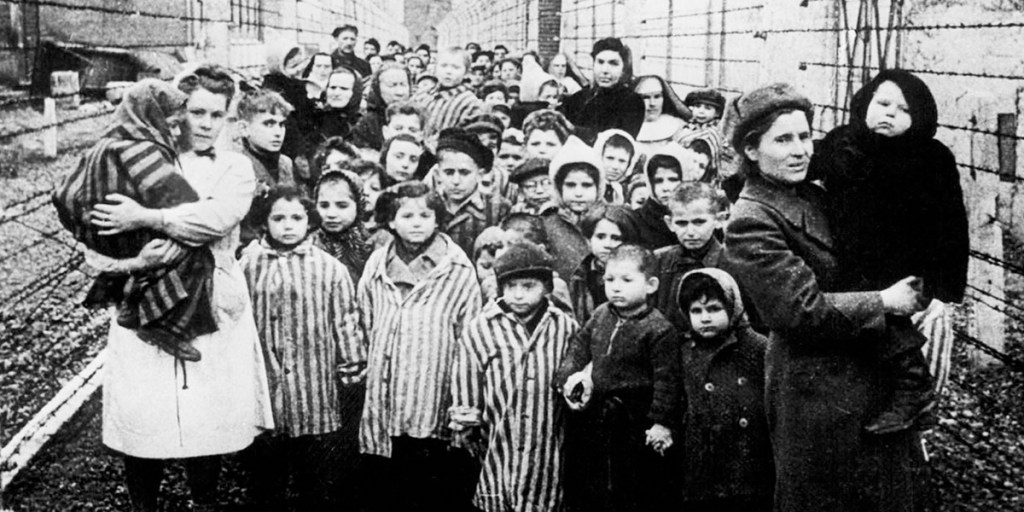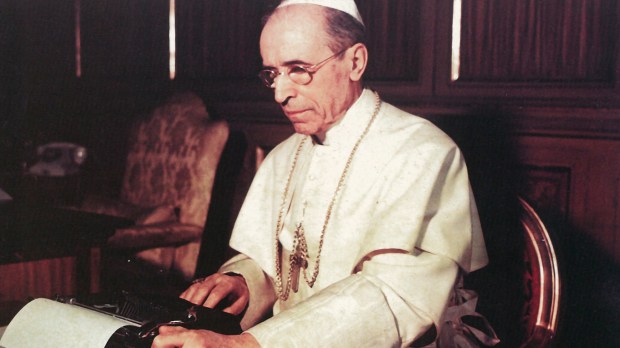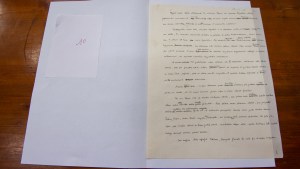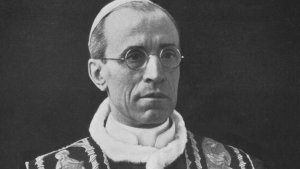On March 2, 2020, Pope Francis officially declassified the secret archives of the pontificate of Pius XII (1939-1958), explaining that the Church is “not afraid of history.” Three and a half years on, the Pontifical Gregorian University is hosting an international conference on “New documents from the pontificate of Pope Pius XII and their meaning for Jewish-Christian relations: a dialogue between historians and theologians.” The event (held October 9-11) appears to be the first major milestone for experts and researchers on this topic since the opening of the archives.
The study of the 6 million documents made accessible by the pontiff three years ago enables us to approach this pontificate with a “much broader vision,” said Bishop Étienne Vetö, auxiliary bishop of Reims and co-organizer of the event. Major organizations such as the Yad Vashem International Institute and the United States Holocaust Memorial Museum are among the organizers of the event. The conference featured presentations by some 30 researchers and their teams from the USA, Germany, France, the UK, Italy, Israel and Belgium.
The event was unique in that Jewish and Catholic theologians were invited to shed religious light on the differences in perception within the two communities regarding this historic period. Cardinal Pietro Parolin, Secretary of State of the Holy See, and the Chief Rabbi of Rome, Riccardo Di Segni, opened the conference, each reserving a word for the ongoing tragedy.
Manipulation and teshuvah
In his speech, the Italian cardinal — who is Pope Francis’s “number 2” — took a strong stance against the “subjective, decontextualized interpretations” that were often disseminated in the post-war period regarding the pontificate of Pius XII. He felt that the opening of the archives showed how “historical documents were manipulated” during this period, leading to “Catholics being mentioned little or not at all in resistance movements.” This was an implicit reference to the accusations leveled against the Pontiff by certain historians close to the Soviet bloc, who reproached him for having been inactive or even complacent towards the actions of the Fascist and Nazi regimes.
“It has become clearer that Pope Pius XII followed both the path of diplomacy and that of clandestine resistance,” said the Secretary of State, refuting the theory that the Italian Pontiff’s silence on the Jewish question during the Second World War was the result of “apathetic inaction.”
By contrast, the Chief Rabbi of Rome did not mention the name of Pius XII, nor the actions of those who came to the aid of Jews during the war. Rather, he insisted on the “anti-Judaism rooted for centuries” within the Catholic Church. He expressed the hope that the current research into the pontificate of Pius XII would be an opportunity for the Catholic Church to continue to “do teshuvah” — or “return from a wrong path,” in Hebrew.
The historical dimension — which calls for contextualization — must be distinguished from the moral dimension, he insisted. “The silence of a man (…) questions us, challenges us and does not escape judgment,” he concluded, quoting Benedict XVI’s speech to the synagogue in Rome in 2010.
A crucial letter
One of the most eagerly awaited contributions came from Vatican archivist Giovanni Coco, who was responsible for the recent discovery, among Pius XII’s personal archives, of a letter sent in 1942 by a German Jesuit who was close to him, Fr. Lothar König. The letter escaped the fate of most of the Pope’s personal archives, burnt by his secretary, the nun Pascalina Lenhert, in 1958. It shows unequivocally that the Pontiff was aware of the crimes committed by the Nazis against Jews and Poles in certain extermination camps, notably Auschwitz.

In the letter, which is known to have reached the Italian Pontiff, Fr. König provides numerous details, claiming that his information was “obtained at the greatest risk.”
“It’s not only my head that’s in danger, but also those of others if they are not used with the utmost caution and care,” insisted the convinced anti-Nazi and philosemite, asking Rome not to endanger “the German Church.”
Ten days after receiving this letter, Pope Pius XII delivered his famous Christmas radio message, in which he implicitly alludes to the extermination of the Jews, referring to “hundreds of thousands of people who, through no fault of their own, and sometimes for the sole reason of their nationality or race, have been doomed to death or gradual extermination.” According to Giovanni Coco, a link between the letter and this speech cannot be proven, but neither can it be ruled out.
The role of the Roman Curia
The Italian archivist, who is responsible for the meticulous cataloging of several collections of documents sent to Pius XII, underlined the problematic role of Monsignor Angelo Dell’Acqua (who later became a cardinal). He was the official in charge of Jewish issues within the Roman Curia, and he dealt with the numerous requests sent by Jews to the Pontiff. The documents drawn up by this “excellent bureaucrat” reveal his anti-Semitism. Indeed, he used racist terms such as “non-Aryans” to refer to Jews.
Giovanni Coco has shown how the Curia, where anti-Jewish prejudice was “diffuse,” never used the word “extermination” to refer to the camps, not only until the death of Pius XII, but also during the pontificates of John XXIII and Paul VI. The first Pontiff to speak of extermination was John Paul II, during his historic visit to Auschwitz in 1979.
“The Pope depended on feedback from those around him,” said Hubert Wolf, a German historian from the University of Münster, who presented his compilation of the nearly 1,700 letters sent by Jews to Pius XII appealing for help. “The question is not Pius XII and the Holocaust, but the Roman Curia and the Holocaust,” he said, considering that the Pontiff was “limited in his decisions.” He described a Curia where information circulated very poorly and was dominated by the desire to make a “bella figura“ — “good impression,” in Italian.
Privileged baptized Jews?
In the light of new sources, the German historian also asserted that, while a certain anti-Judaism or anti-Semitism was clearly evident in the Curia, there was no “fundamental difference” in treatment between letters from baptized and non-baptized Jews, and therefore no preferential treatment for Catholics alone.
This position was not shared by another speaker at the conference, Pulitzer Prize-winning academic David Kertzer, who has been highly critical of Pius XII in his recent publications — and could be one of the targets of Cardinal Parolin’s inaugural criticism. According to the American, who works for Brown University in the USA, Msgr. Dell’Acqua’s administration made a distinction between “Aryan Jews,” who were of mixed descent, and “non-Aryan” Jews.
The American also pointed out how Msgr. Dell’Acqua had clearly advised the Pope against denouncing the large-scale roundups in Rome and the rest of Italy. According to a note from the official, “an official intervention by the Holy See [could have] strengthened the Nazi leaders in the false idea” that the Vatican supported “the destruction of the German people.” For David Kertzer, while Pius XII “personally deplored” the actions of the Nazis and Fascists against the Jews, his primary desire was to “maintain good relations with the occupying forces.”



